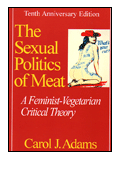 Skinny is a new book by Canadian Ibi Kaslik, who, not surprisingly, had an eating disorder herself. The main characters in the book are Gizelle and her sister Holly. Gizelle's had to drop out of medical school due to her illness, and Holly, in contrast, is an athlete. Chapters switch the between the perspectives of each girl, with Gizelle's beginning with snippets from a medical text, giving an eerie, dry tone to the emotional story.
Skinny is a new book by Canadian Ibi Kaslik, who, not surprisingly, had an eating disorder herself. The main characters in the book are Gizelle and her sister Holly. Gizelle's had to drop out of medical school due to her illness, and Holly, in contrast, is an athlete. Chapters switch the between the perspectives of each girl, with Gizelle's beginning with snippets from a medical text, giving an eerie, dry tone to the emotional story. Skinny differs from those "anorexic books" of my youth in that, instead of focusing on the obsessive behaviors of the anorexic, Kaslik writes about the obsessive thoughts of her main character. In fact, there is only one scene in the book that describes (briefly) how Gizelle throws up her dinner. Seriously, if you've read any of these books (why can't I remember a single title?) I'm sure you'll agree that this is quite unusual. As I recall, so many of them go into absolutely pornographic detail in how to starve yourself and/or how to most efficiently become a bulimic - as well, of course, of how to hide it from your parents.
Skinny feels much less like a book from the Eating Disorder Genre and more like a really great book about a girl who has an eating disorder. Kaslik's writing is poetic and I think she really challenges the YA description. It's a book that would hold appeal for a wide range of readers. I couldn't put it down.







